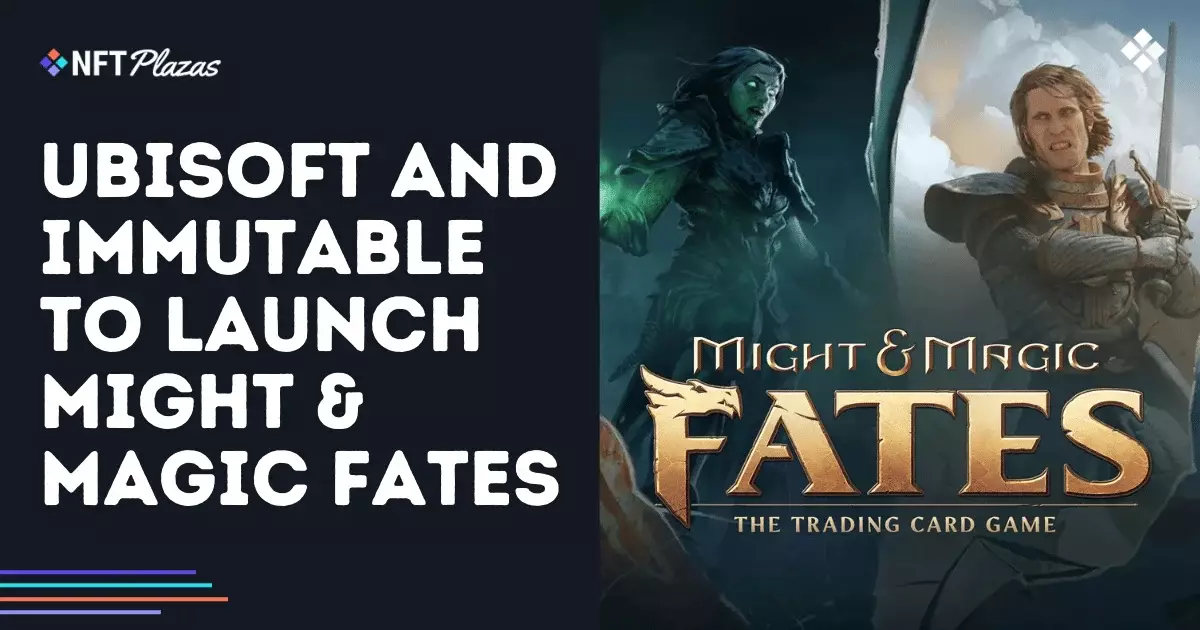In a groundbreaking partnership that has sent ripples through both traditional and blockchain gaming circles, Immutable and Ubisoft are teaming up to unveil Might & Magic Fates. The collaborative project signifies more than just another title launch; it marks a critical juncture where mainstream gaming meets cryptographic innovation. With Ubisoft’s track record of producing massively successful franchises, like Assassin’s Creed and Far Cry, and Immutable’s cutting-edge blockchain foundation, the potential here transcends typical game releases. It could serve as a case study for how legacy gaming companies can evolve amidst modern technological upheavals—a lesson many in the industry are either too cautious or too oblivious to learn.
The Nostalgia Factor
Rooted in the illustrious Might & Magic universe, a franchise that has captivated players since the 1980s, Fates brings nostalgia to the forefront in a way few games attempt today. Leveraging decades of established lore, vibrant characters, and intricate factions, this title doesn’t merely extend the franchise; it reinvigorates it. The nostalgia factor alone could attract both seasoned veterans of the franchise and a new generation of gamers looking for distinctive experiences. However, one must wonder: is it merely a ploy to mask underlying gameplay weaknesses? Many such revivals often rely on the past’s glow while faltering in innovative gameplay mechanics.
Accessibility or Exclusivity?
Might & Magic Fates is primarily free-to-play, but it embraces optional Web3 functionalities that allow players to trade cards on a blockchain. On the surface, this model seems incredibly appealing, offering a gateway to introduce blockchain concepts to a broader audience. However, this raises critical questions about the accessibility and potential exclusivity of the gaming experience. While the base game will remain unaffected by the blockchain’s complexities, will the added features cater predominantly to a niche group, or will they enhance the overall experience for everyone? Is it ethical to offer a dual-layered experience that inevitably divides the player base?
Marketing Spin or Genuine Vision?
Immutable co-founder Robbie Ferguson’s ambitious remarks about reaching over 1 billion players globally should not be taken lightly. While such aspirations can excite investors and players alike, they also raise concerns about whether this lofty goal is rooted in substantial groundwork or simply optimistic marketing speak. Is there a well-crafted strategy to back this assertion, or is it just a philosophical manifesto devoid of real partnership synergy? Moreover, is the blockchain hype genuinely sustainable, or is it on the verge of another speculative collapse?
The Future: A Delicate Balance
The anticipation surrounding Might & Magic Fates is palpable. Yet, as one examines this intersection of traditional gaming and blockchain technology, it becomes apparent that the initiative is fraught with challenges. The landscape of NFT gaming is evolving rapidly, but Fates must deftly navigate the treacherous waters of both innovations and entrenched player expectations. As they unveil more details about the game’s mechanics and lore, one thing is clear: If they can maintain a balance between traditional gameplay and modern blockchain offerings, they could redefine the gaming landscape. But failure to do so may result in yet another missed opportunity for genuine advancement in the gaming realm.

